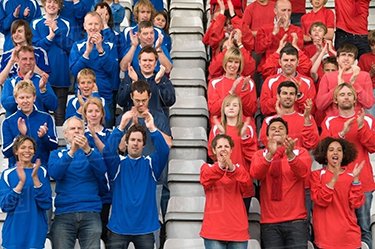Political Hobbyism Ruining US Politics
Eitan Hersch, Partisanship, Political Hobbyism, Politics
Eitan Hersch is a left-wing academic, who is unhappy with today’s “hobbyist politics,” because he prefers activism in pursuit of actual power.
I obviously do not sympathize, but I think he is on to something here. For a very large number of Americans, their political loyalties function very much like their sports team loyalties. They are simply an outlet for spectatorship and partisan emotion and their political loyalties have roughly the same reality status as their loyalty to the sports team and mascot representing their former university.
In the United States, political habits vary significantly by race and education. In a 2018 survey, I found that white people reported spending more time reading, talking, and thinking about politics than black people and Latinos did, but black people and Latinos were twice as likely as white respondents to say that at least some of the time they dedicate to politics is spent volunteering in organizations. Likewise, those who were college-educated reported that they spend more time on politics than other Americans do—but less than 2 percent of that time involves volunteering in political organizations. The rest is spent mostly on news consumption (41 percent of the time), discussion and debate (26 percent), and contemplating politics alone (21 percent). Ten percent of the time is unclassifiable.
Furthermore, the news that college-educated people consume is unlikely to help them actively participate in politics, because, as the Pew Research Center has found, they are more likely than non-college-educated Americans to rely on national rather than local sources of news. Daily news consumers are very interested in politics, so they say, but they aren’t doing much: In 2016, most reported belonging to zero organizations, having attended zero political meetings in the past year, and having worked zero times with others to solve a community problem.
What explains the rise of political hobbyism? One important historical explanation is the culture of comfort that engulfs college-educated white people, a demographic group that is now predominately Democratic. They have decent jobs and benefits. There has been no military conscription for some 50 years. Harvard’s Theda Skocpol argues that as the percent of Americans with a college degree has increased over time, they have come to feel less special, less like stewards of their community, and less like their communities depend on them. As the college-educated population has grown over time, community participation has, surprisingly, plummeted.
In other words, college-educated people, especially college-educated white people, do politics as hobbyists because they can. On the political left, they may say they fear President Donald Trump. They may lament polarization. But they are pretty comfortable with the status quo. They don’t have the same concrete needs as Matias’s community in Haverhill. Nor do they feel a sense of obligation, of “linked fate,†to people who have concrete needs such that they are willing to be their allies. They might front as allies on social media, but very few white liberals are actively engaging in face-to-face political organizations, committing their time to fighting for racial equality or any other issue they say they care about.
Instead, they are scrolling through their news feeds, keeping up on all the dramatic turns in Washington that satiate their need for an emotional connection to politics but that help them not at all learn how to be good citizens. They can recite the ins and outs of Special Counsel Robert Mueller’s investigation or fondly recall old 24-hour scandals such as Sharpiegate, but they haven’t the faintest idea how to push for what they care about in their own communities.
If you think the status quo in politics isn’t great, then the time wasted on political hobbyism is pretty tragic. But political hobbyism is worse than just a waste of time. As I argue in my new book, Politics Is for Power, our collective treatment of politics as a sport incentivizes politicians to behave badly. We reward them with attention and money for any red meat they throw at us. Hobbyism also cultivates skills and attitudes that are counterproductive to building power. Rather than practicing patience and empathy like Matias needs to do to win over supporters in Haverhill, hobbyists cultivate outrage and seek instant gratification.




